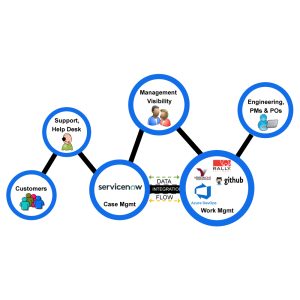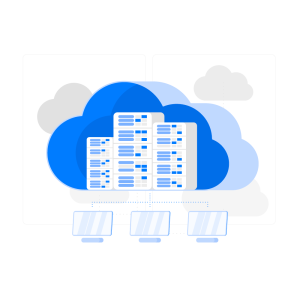Healthcare has always been one of the most data-intensive and mission-critical industries in the world. From patient records and diagnostic imaging to clinical research and regulatory compliance, hospitals and healthcare providers manage a vast and complex web of information every day. Yet much of this data has historically been siloed, unstructured, and underutilized.
Enter IBM Watson healthcare solutions an advanced set of Watson AI applications designed to transform how data is used in clinical environments. By leveraging artificial intelligence, natural language processing, and automation in healthcare, IBM Watson enables faster diagnoses, more accurate treatments, and streamlined administrative processes.
The big question is no longer “Can AI work in healthcare?” but rather “How do we apply Watson AI in real-world healthcare systems to create measurable benefits for patients, clinicians, and administrators?”
In this blog, we’ll explore:
- The core capabilities of IBM Watson healthcare solutions.
- Real-world Watson AI applications across clinical and administrative use cases.
- Benefits of automation in healthcare, from compliance to patient engagement.
- Case studies highlighting IBM Watson’s impact in hospitals, research centers, and pharma.
- A roadmap for healthcare institutions looking to adopt Watson.
Why Healthcare Needs AI Now
The healthcare sector is under immense pressure to deliver better patient outcomes, maintain compliance with rapidly evolving regulations, and reduce costs all while dealing with rising demand and workforce shortages. These challenges highlight why IBM Watson healthcare solutions and Watson AI applications are essential.
- Data Overload – Hospitals and clinics generate massive volumes of data daily, from EHRs, diagnostic scans, lab results, and clinical notes to published medical research. Without AI, much of this information remains underutilized, delaying critical decisions. Watson’s ability to process structured and unstructured data ensures valuable insights are not lost.
- Clinical Decision Complexity – Diagnosing complex illnesses like cancer or rare genetic conditions requires cross-referencing medical histories, test results, and global research. Watson AI applications speed this process by synthesizing diverse data sources, reducing diagnostic uncertainty, and supporting evidence-based treatment decisions.
- Administrative Burden – Physicians spend nearly half their time on documentation, billing, and reporting instead of patient care. With automation in healthcare, Watson minimizes repetitive tasks, easing physician burnout and allowing more focus on patients.
- Regulatory Demands – Compliance with HIPAA, GDPR, and regional health data laws requires strict governance and secure data handling. IBM Watson healthcare platforms include governance frameworks to ensure compliance is built into every workflow.
- Patient Expectations – Today’s patients expect personalized, digital-first experiences across mobile apps, portals, and virtual assistants. Watson enables this by powering chatbots, appointment scheduling, and tailored care recommendations.
By combining clinical expertise with AI-driven automation, IBM Watson healthcare addresses these pressing issues and creates a smarter, more resilient healthcare system.
What is IBM Watson Healthcare?
IBM Watson Healthcare is a suite of AI-powered platforms and tools that bring intelligence, automation, and scale to healthcare and life sciences. By combining Watson AI applications with industry expertise, it helps healthcare providers turn raw, complex data into meaningful insights that improve patient outcomes and streamline operations. These solutions are designed to handle both structured data (like lab results or billing codes) and unstructured data (like doctors’ notes or medical literature) so clinicians and researchers can make faster, evidence-based decisions.
Key components include:
- Watson for Oncology – Assists oncologists by comparing patient cases against vast medical literature and treatment guidelines. It helps deliver personalized, evidence-based cancer care, supporting doctors in selecting the most effective therapies.
- Watson for Genomics – Interprets genetic sequencing data to suggest targeted treatments. This enables precision medicine, allowing healthcare providers to tailor interventions to the genetic profile of each patient.
- Watson Assistant for Healthcare – Powers AI-driven virtual assistants that engage patients, schedule appointments, answer queries, and support clinicians, reducing call center loads and improving patient satisfaction.
- Watson Discovery for Research – Accelerates clinical research by analyzing millions of academic papers, trial results, and medical records to uncover hidden patterns and insights.
- Watson Knowledge Catalog – Provides strong data governance and compliance, ensuring healthcare data is cataloged, secured, and accessible only to authorized users in line with regulations like HIPAA and GDPR.
Together, these tools are deployed in hospitals, research centers, pharmaceutical companies, and insurance providers worldwide, making Watson a key driver of innovation in healthcare.
Watson AI Applications in Clinical Settings
Diagnostics and Treatment Recommendations
One of the most critical applications of IBM Watson healthcare is supporting clinicians in diagnosis and treatment planning. Watson can analyze patient records, diagnostic reports, and thousands of peer-reviewed medical journals in minutes, identifying potential conditions and ranking treatment options. This ensures that doctors base their decisions on evidence-driven insights rather than subjective judgment alone.
Example: At Memorial Sloan Kettering Cancer Center, Watson for Oncology helps oncologists recommend treatment protocols tailored to each patient’s cancer type and stage.
Genomics and Precision Medicine
With the rise of personalized medicine, Watson plays a vital role in processing genetic sequencing data. By identifying genetic mutations linked to diseases, Watson suggests therapies targeted to the patient’s genetic profile. This approach supports precision medicine, ensuring treatments are not just effective but also individualized.
Clinical Research Acceleration
Research teams often struggle with the sheer volume of academic literature and trial data. Watson Discovery addresses this by scanning millions of documents, uncovering patterns, and surfacing actionable insights. This accelerates the pace of drug discovery, clinical trial matching, and medical innovation significantly.
Patient Engagement
Hospitals use Watson Assistant to deploy intelligent chatbots and virtual assistants. These tools handle routine patient queries, schedule appointments, send reminders, and provide medical education. By automating these interactions, healthcare providers reduce call center loads while enhancing the patient experience with responsive, 24/7 support.
Automation in Healthcare: Beyond the Clinic
AI is not limited to the clinical side. Automation in healthcare powered by Watson improves efficiency across administrative and operational workflows.
- Claims Processing: Automating insurance claims with Watson reduces manual errors and speeds up approvals.
- Compliance Reporting: Automating audit trails ensures compliance with HIPAA and other regulations.
- Workforce Efficiency: Doctors spend less time on administrative work and more time with patients.
- Hospital Operations: Automation optimizes scheduling, bed allocation, and resource management.
This holistic approach demonstrates that AI isn’t just about diagnosis it’s about transforming the entire healthcare value chain.
Benefits of IBM Watson in Healthcare
- Improved Patient Outcomes – Watson AI applications enable doctors to quickly analyze patient records, research papers, and treatment guidelines, providing evidence-based recommendations. This improves diagnostic accuracy and ensures patients receive the most effective care.
- Cost Reduction – By introducing automation in healthcare, Watson helps reduce administrative overhead, eliminate redundant paperwork, and optimize workflows. Hospitals save resources while minimizing errors in billing and claims processing.
- Scalable AI – Whether it’s a small clinic or a large hospital network, IBM Watson healthcare solutions are designed to scale. This flexibility allows organizations to start small and expand AI usage as needs grow.
- Better Patient Experience – With AI-driven chatbots and digital tools, patients gain personalized, responsive services, from appointment scheduling to real-time medical guidance, enhancing satisfaction and trust.
- Data Governance & Security – Watson includes built-in compliance with HIPAA and GDPR, ensuring sensitive healthcare data is cataloged, governed, and protected.
Real-World Case Studies
Oncology Support in India
Manipal Hospitals in India adopted Watson for Oncology to assist doctors in recommending treatment plans. The result: faster, evidence-backed cancer care accessible even in resource-constrained environments.
Genetic Sequencing in the U.S.
Partnerships with companies like Quest Diagnostics use Watson AI applications to analyze genomics data, helping physicians deliver more precise and effective treatments.
COVID-19 Research Acceleration
During the pandemic, Watson Discovery was leveraged to process thousands of COVID-related papers, enabling researchers to identify treatment patterns faster.
Roadmap to Adopting Watson in Healthcare
For institutions considering Watson, adoption typically follows these steps:
- Assessment – Evaluate existing data infrastructure and identify pain points.
- Pilot Projects – Begin with smaller use cases like chatbots or claims processing.
- Integration – Connect Watson to existing EHR, CRM, or clinical systems.
- Scaling – Expand into diagnostics, genomics, or large-scale patient engagement.
- Continuous Improvement – Regularly retrain AI models to adapt to new medical knowledge.
The Future of Healthcare with Watson
The role of IBM Watson healthcare solutions extends far beyond simply adding technology into hospitals it represents a fundamental paradigm shift in the way medicine is practiced and delivered. By leveraging Watson AI applications, healthcare providers can transform data into real-time intelligence, automate repetitive yet critical workflows, and create personalized patient journeys that improve outcomes and build long-term trust.
In today’s climate, where healthcare organizations face escalating operational costs, workforce shortages, and rising patient expectations, the need for automation in healthcare has never been greater. Watson provides a path forward by uniting clinical expertise with AI-driven insights, enabling institutions to diagnose faster, reduce errors, and optimize administrative tasks, all while ensuring regulatory compliance through built-in governance.
For decision-makers, the critical question is no longer “Should we adopt AI?”—that has already been proven through global case studies in oncology, genomics, and patient engagement. Instead, the real challenge is “How quickly can we integrate Watson into our systems and workflows?” Those who act early will gain competitive advantages in efficiency, accuracy, and patient satisfaction, while those who delay risk falling behind.
Ultimately, Watson is not just reshaping healthcare it is future-proofing it for the digital age.




